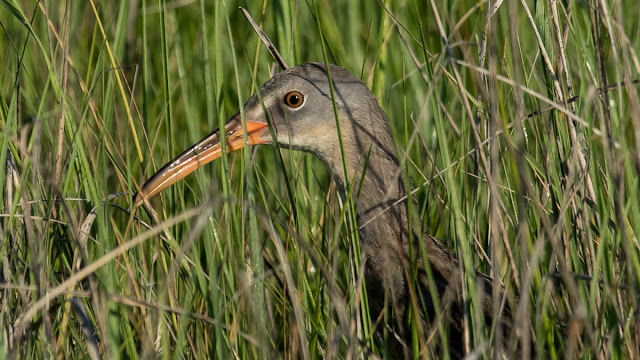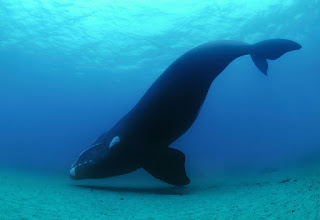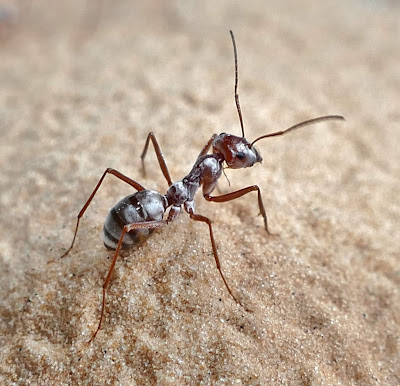Cordgrass (Spartina) ~ Invasive and Exotic Species of the Mind
Imagine you attend a lecture by a prominent Christian Apologist. As you listen to his presentation, you find his argument for human purpose to be elegant, compelling, and inspirational. At the end of the lecture, as the crowd begins filing out of the auditorium, your friend turns to you and remarks that she’s hesitant to believe anything the speaker said because he’d quoted the atheist philosopher Frederick Nietzsche’s famous line, “He who has a ‘why’ to live for can bear almost any ‘how’.”[4] You discuss other aspects of the talk but your friend is adamant: anyone who quotes an atheist is probably not a real Christian.
How would you respond to this friend? Would you agree with her? Should we avoid ideas that come from other camps? The above conversation is hypothetical, but likely semblant of a real conversation you’ve had at some point in your life. It raises many valid questions about how we approach our thought lives and how we sift through the vast sea of information confronting us daily.
As a biologist, I often imagine the mind as a sort of ecosystem, with each train of thought contributing to the mental ecology in the same way that various species might affect their respective environment. How do we know which thoughts to grab hold of, and which to keep outside? One of the most surprising things I learned during my graduate research in New Zealand is that ‘invasive’ and ‘exotic’ species are not the same thing. ‘Invasive’ species are, by definition, harmful. ‘Exotics’ are simply organisms from another ecosystem, so not all exotic species are detrimental to their environment.
Usually when we think about ‘invasive’ species we think of a creature coming into a new habitat and wreaking havoc. Don’t get me wrong, this is a very common occurrence. There are ample examples like the dreaded Eurasian zebra mussel, which has already cost the United States $2 billion and decimated the stock of nutrients in multiple ecosystems.[5] It has been estimated that 50% of species on this planet are threatened due to invasive species, so I’m not trying to say that invasive species don’t have a big impact. [6] Even in New Zealand where I studied conservation biology, at least 77 species of birds have already gone extinct on the islands, and in most cases invasive mammals are to blame. [7] Yet it’s important to remember that not all invasive species come from another place. Sometimes, indigenous species end up becoming invasive, even though they’ve inhabited that environment all along! Consider, for instance, the delicate salt marshes of Cape Cod. A small crab (Sesarma reticulatum) was harming the marsh ecology by eating up all the grasses. Its numbers were getting out of control, and even though it was an indigenous species, it was destroying its environment. An exotic species of crab (Carcinus maenas) was introduced to keep the native crab in check. Balance was restored, and the salt marshes have been steadily recovering since the introduction of the exotic crab.[9]
Thus, just as indigenous species can sometimes become detrimental, sometimes foreign species can become beneficial. Oftentimes foreign species are deliberately translocated into a damaged ecosystem to boost its recovery. One study of exotic plants entering an ecosystem found that total community production increased by more than 50% due to the presence of the foreign botanicals. These alien plants enhanced microbial activity and available nitrogen in the soil. The foreign plants also decreased pH which is a good thing for everybody involved.[8] Similarly, the severely endangered clapper rail would never have been able to return to its native habitat without the help of exotic Spartina grasses on which it could nest.
Clapper Rail (Rallus crepitans) among Cordgrass (Spartina)
It was the confusion around the nuances of species effects on environmental factors culminating with equivocation in publications that led me to write a paper arguing for better terminology around the exotic/invasive discussion. Below is the table from the paper I submitted for review.
Table of Terminology
Effect (Deontological) | Natural History (Ontological) | ||
Native | Not Native | ||
Not necessarily bad | “indigenous” “endemic” | “exotic” “alien” | |
Necessarily bad | “invasive” | “invasive” | |
To clarify:
· Natives are not necessarily good for an ecosystem.
· Nonnatives (alien, exotic) not necessarily bad for an ecosystem.
· Invasives are necessarily bad, but not necessarily exotic.
In my paper, I argued that foreign species should be called ‘invasive’ because of their role. Otherwise, for the sake of clarity, they should be called ‘exotic’ species. The reasoning for this terminology was that I felt the invasive/exotic nomenclature of a species should be determined by its role, not its origin. My desire was to find a terminology that referenced both ontology (what it is) and deontology (what it ought to be). Thus, we can have an invasive exotic species, or an invasive endemic species. Both are detrimental, having an effect they ought not to be having, but one is from a different ecosystem while the other is native to the same ecosystem it is destroying.
In the same way that we should view the species composing an ecosystem by their effect, perhaps we would do well to measure thoughts by their outcomes rather than their origins. Yet it’s often said that the origin of an idea dictates its measure of reliability. In this view, the ideology or culture that spawned an idea tells us if it’s potentially true. In philosophy we call this view a ‘genetic fallacy’ or a ‘fallacy of origin’. In the same way that Nathanael said of Jesus, “Can anything good come out of Nazareth?” (Luke 1v46), people sometimes reject a thinker or their ideas because of where they’ve come from. To do this is to rob oneself of a rich heritage of human thought. I am not a stoic, but I agree with Seneca’s writings on the fragility of life. I’m not a sophist, but I agree with Socrates’ view on the importance of self-reflection.
Hear me well. We should not blindly receive all that is offered to us. Not all ideas are created equally. 1 Thessalonians 5:21 makes it clear when it exhorts us to “examine everything carefully and hold fast to that which is good.” But in the spirit of this verse, to neglect an honest consideration of potential truths would be as equally fallacious as a flat-out acceptance of them. A wise man once said, “all truth is God’s truth”[1]. Similarly, in his Institutes of the Christian Religion, John Calvin writes: “In reading profane authors, the admirable light of truth displayed in them should remind us, that the human mind, however much fallen and perverted from its original integrity, is still adorned and invested with admirable gifts from its Creator. If we reflect that the Spirit of God is the only fountain of truth, we will be careful, as we would avoid offering insult to him, not to reject or condemn truth wherever it appears.”[2]
An honest reading of the Bible shows us many examples of Christians who carefully studied and sometimes accepted the teachings of those on the outside of Christianity. For instance, in Acts 17, Paul addresses the Athenians gathered at the Areopagus, beseeching them to “seek God, and perhaps feel their way toward Him and find Him,” assuring his audience that “He is actually not far from each one of us.” In this discourse, Paul quotes their own poets to them. He first quotes Epimenides of Crete, and then recites a line from Aratus’s work ‘Phainomena’. Neither of these thinkers ever claimed to be Christian, yet Paul uses their thoughts to draw his hearers into a deeper understanding of the truth. In the Old Testament we also see examples of God’s people learning truth from those who did not know God. Consider the case of Ester, who sought advice from Hegai the eunuch to discover what would best please the king. (Esther 2:15). But of all these examples, perhaps my favorite is that of the Magi. These were magicians from the east who came to offer gifts to a king whose star they had seen in the heavens. We don’t know much about these mystical men, but in the pages of the gospels we see that they were men of great learning and great wisdom. Jesus’ family readily accepted the gifts they offered, and it was likely these gifts that allowed them the monetary requirements needed to pass into Egypt when they were forced to flee. If the Son of God accepted gifts from magicians, ate with tax collectors, and spent countless hours with prostitutes and beggars, surely, we can spare time to listen to the voices and ideas of those who think differently than us. Who knows; perhaps we will find great treasure there.
It is needful and a blessing for us to drink deeply from the wisdom of the ages, even from those residing in different belief ecosystems. Piper, who openly dislikes the saying that all truth is God's truth, still writes, “It is fitting, therefore, for God’s sake—for love’s sake—that believers learn what we can from unbelievers who see many things that we may miss, but do not see the one thing needful.”[3] Because of common grace, we all have a chance to discover truth. That truth may be scientific, philosophical, or logical. But the truth that saves can only be found in one small patch out of all the ecosystems of earth: the blood-splattered dirt at the foot of the cross. If we allow ourselves to explore the propositions of those outside the faith, they might just become more open to hearing about the truth we have to offer humanity. It is the greatest discovery any human being can make in their lifetime: that there is a God who loves them and gave His life to be reconciled to them. Let’s be wise enough to listen to voices outside of our sphere, and let’s be ready share the most profound truth of all with a hurting world.
Works Cited
For more reading on the theology of this topic, I would recommend this article: https://www.ligonier.org/learn/articles/all-truth-gods-truth-reformed-approach-science-and-scripture
[1] Dr. R.C. Sproul, said in a panel at the Ligonier’s 2012 National Conference. He said this when he was asked about the age of the earth.
[2] Here he means ‘profane’ not in the sense of poor language, but in the sense of arising outside Christendom. Calvin, John. Institutes of the Christian Religion.
[3] Piper, John. "All Truth Is God's Truth," Admits the Devil; Meditations on an Academic Slogan. https://www.desiringgod.org/articles/all-truth-is-gods-truth-admits-the-devil
[4] The exact translation of the quote varies in different volumes. The original is from Friedrich Nietzsche’s “Götzen-Dämmerung; oder, Wie man mit dem Hammer philosophirt” (“Twilight of the Idols, or, How to philosophize with a hammer”) published in 1889. I chose Viktor E. Frankl’s quotation of this piece from his work ‘Man’s Search for Meaning’ because I feel it encapsulates the heart behind this quote.
[5] VITOUSEK, PETER M., CARLA M. D'ANTONIO, LLOYD L. LOOPE, MARCEL REJMÁNEK, and RANDY WESTBROOKS. 1997. "INTRODUCED SPECIES: A SIGNIFICANT COMPONENT OF HUMAN-CAUSED GLOBAL CHANGE". New Zealand Journal of Ecology. 21 (1): 1-16.
[6] Gurevitch, J., & Padilla, D. K. (January 01, 2004). Are invasive species a major cause of extinctions?. Trends in Ecology and Evolution, 19, 9.)
[7] Elliott, G. P., Wilson, P. R., Taylor, R. H., & Beggs, J. R. (September 01, 2010). Declines in common, widespread native birds in a mature temperate forest. Biological Conservation, 143, 9, 2119.
[8] Vilà, Montserrat, José L Espinar, Martin Hejda, Philip E Hulme, Vojtěch Jarošík, John L Maron, Jan Pergl, Urs Schaffner, Yan Sun, and Petr Pyšek. 2011. "Ecological impacts of invasive alien plants: a meta-analysis of their effects on species, communities and ecosystems". Ecology Letters. 14 (7): 702-708.
[9] Bertness, M. D., & Coverdale, T. C. (September 01, 2013). An invasive species facilitates the recovery of salt marsh ecosystems on Cape Cod. Ecology, 94, 9, 1937-43.


-5.adapt.945.2.jpg)

Comments